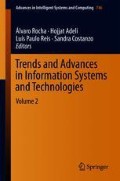Abstract
The difficulty to predict the human’s behavior has caused the need to learn cultural differences between peoples. Although culture is one of the concepts that are difficult to define, best learning these differences depends on the culture modeling quality. In this paper, a new culture modeling is proposed to facilitate the learning process. This modeling allows to generate the frequent cultural characteristics in each region and extract cultural association rules. We create benchmarks of culture, based on a survey accessible from the web. The cultural datasets are analyzed with the Apriori algorithm to extract frequent attributes values. The obtained results show similarities and differences between cultures. Based on these results, we pass to the construction of association rules and their confidence.
Access this chapter
Tax calculation will be finalised at checkout
Purchases are for personal use only
References
Ashkanasy, N.M., Wilderom, C.P., Peterson, M.F.: Handbook of Organizational Culture and Climate. Sage, Thousand Oaks (2000)
Bulitko, V., Solomon, S., Gratch, J., Van Lent, M.: Modeling culturally and emotionally affected behavior. In: AIIDE (2008)
D’Andrade, R.G.: Schemas and motivation. Hum. Mot. Cult. Models 23, 44 (1992)
Gratch, J., Marsella, S.: Tears and fears: modeling emotions and emotional behaviors in synthetic agents. In: Proceedings of the fifth International Conference on Autonomous Agents, pp. 278–285. ACM (2001)
Han, J., Pei, J., Kamber, M.: Data Mining: Concepts and Techniques. Elsevier, Amsterdam (2011)
Hofstede, G.: Culture’s Consequences: Comparing Values, Behaviors, Institutions, and Organizations Across Cultures. Sage, Thousand Oaks (2001)
Hofstede, G.H., Hofstede, G.J., Minkov, M.: Cultures and Organizations: Software of the Mind: Intercultural Cooperation and its Importance for Survival, 3rd edn. McGraw-Hill, New York (2010)
House, R., Hanges, P., Ruiz Quintanilla, S., Dorfman, P., Javidan, M., Dickson, M., Gupta, V.: Cultural influences on leadership and organizations: project globe. Adv. Glob. Leadersh. 1, 171–233 (1999)
Morris, A., Ross, W., Ulieru, M.: Modelling culture in multi-agent organizations. In: International Conference on Autonomous Agents and Multiagent Systems, pp. 65–79. Springer, Heidelberg (2011)
Patterson, M., Payne, R., West, M.: Collective climates: a test of their sociopsychological significance. Acad. Manag. J. 39(6), 1675–1691 (1996)
Solomon, S., Van Lent, M., Core, M., Carpenter, P., Rosenberg, M.: A language for modeling cultural norms, biases and stereotypes for human behavior models. Technical report, University of Southern California Marina del Rey CA Inst for Creative Technologies (2008)
Traum, D., Rickel, J., Gratch, J., Marsella, S.: Negotiation over tasks in hybrid human-agent teams for simulation-based training. In: Proceedings of the Second International Joint Conference on Autonomous Agents and Multiagent Systems, pp. 441–448. ACM (2003)
Author information
Authors and Affiliations
Corresponding authors
Editor information
Editors and Affiliations
Rights and permissions
Copyright information
© 2018 Springer International Publishing AG, part of Springer Nature
About this paper
Cite this paper
Kechid, A., Drias, H. (2018). Association Rules Mining for Culture Modeling. In: Rocha, Á., Adeli, H., Reis, L., Costanzo, S. (eds) Trends and Advances in Information Systems and Technologies. WorldCIST'18 2018. Advances in Intelligent Systems and Computing, vol 746. Springer, Cham. https://doi.org/10.1007/978-3-319-77712-2_36
Download citation
DOI: https://doi.org/10.1007/978-3-319-77712-2_36
Published:
Publisher Name: Springer, Cham
Print ISBN: 978-3-319-77711-5
Online ISBN: 978-3-319-77712-2
eBook Packages: EngineeringEngineering (R0)

